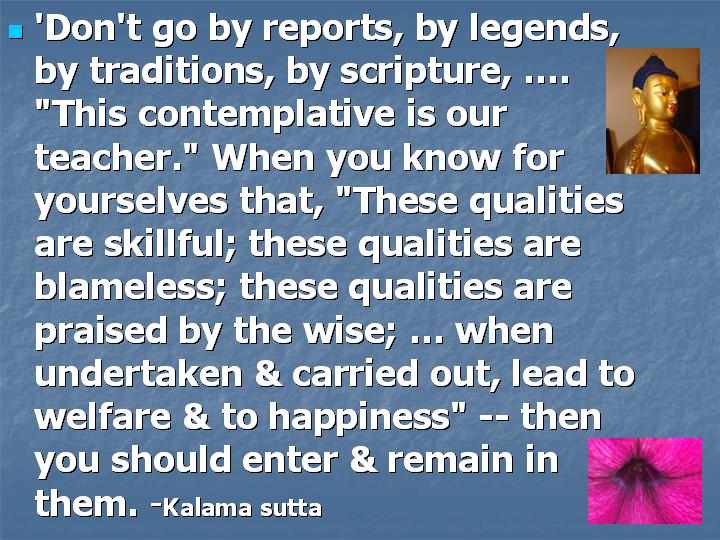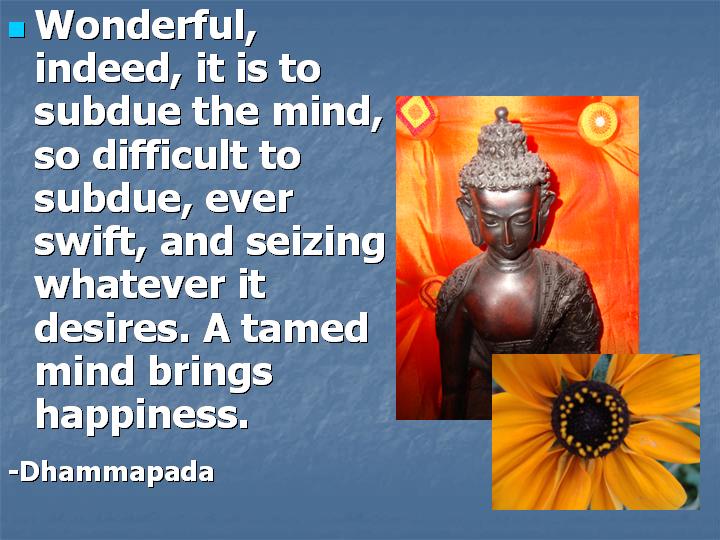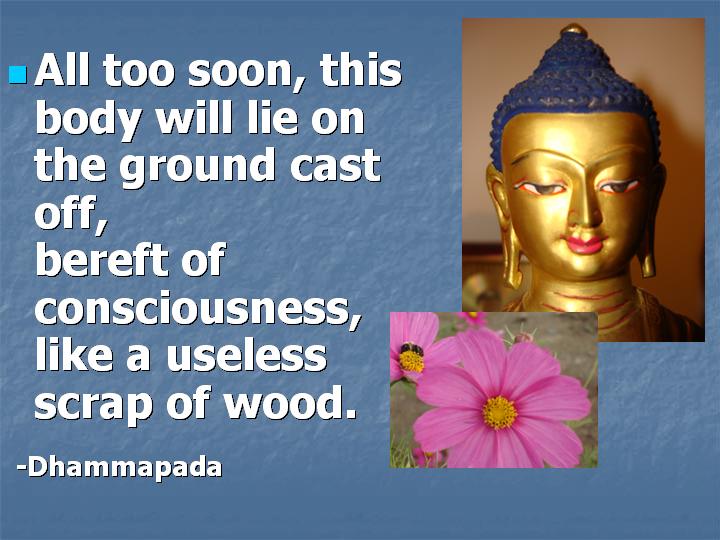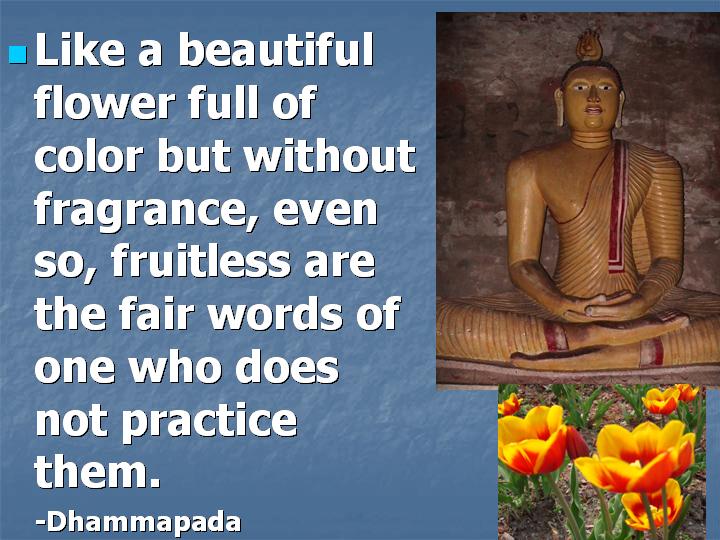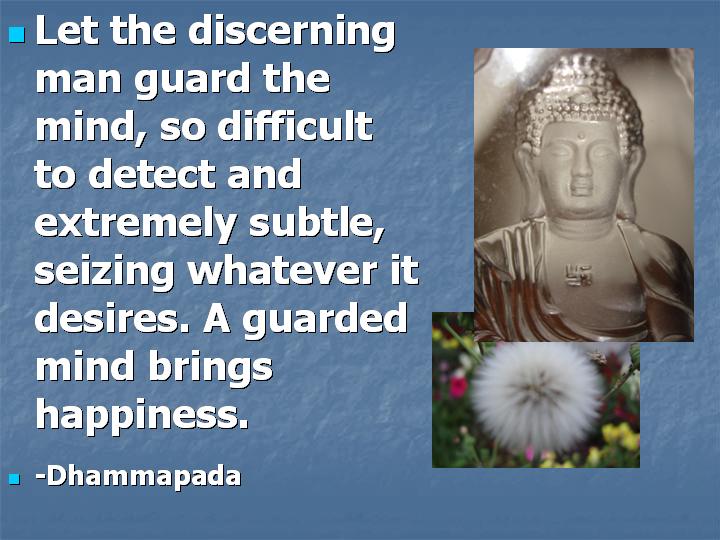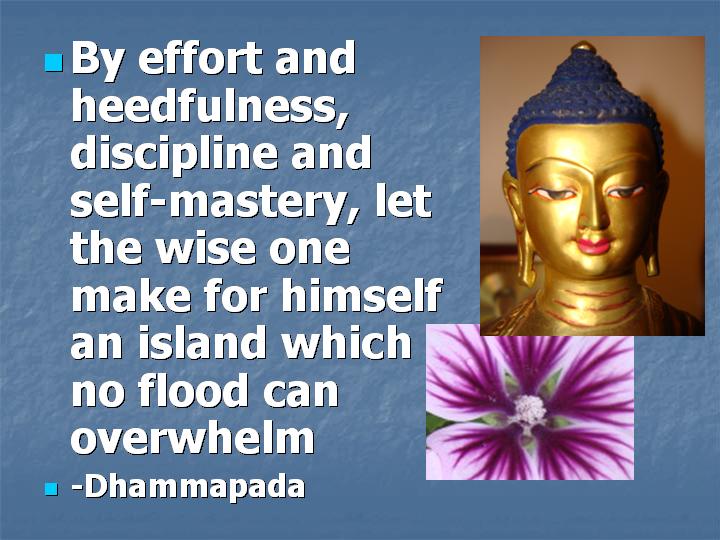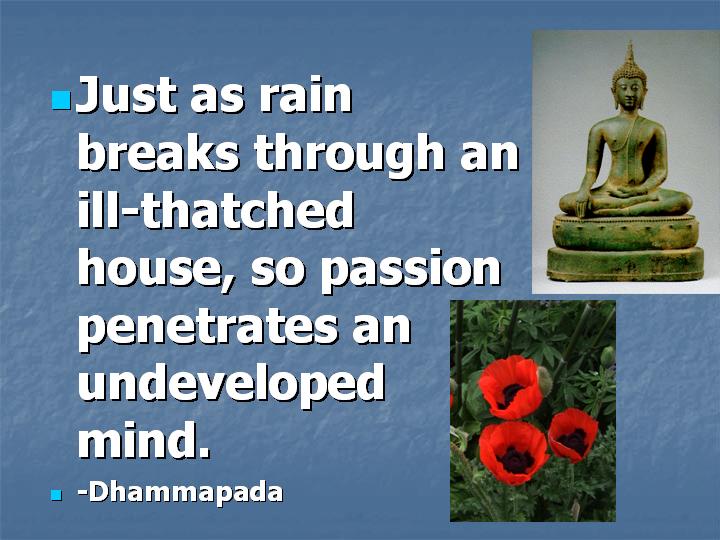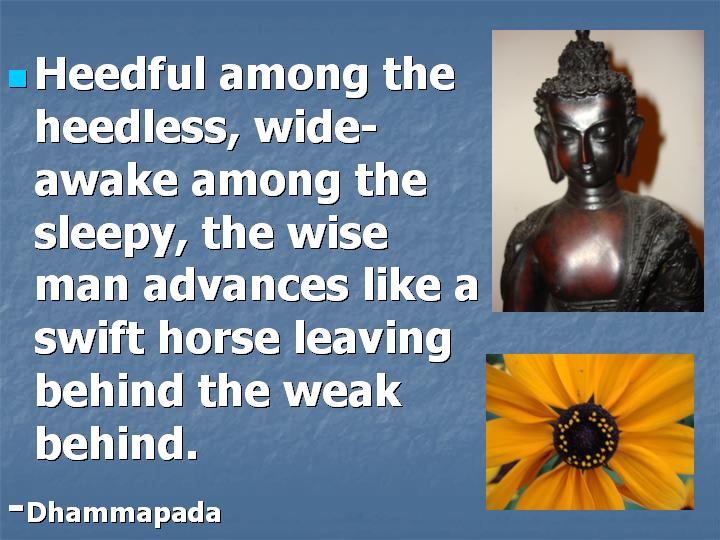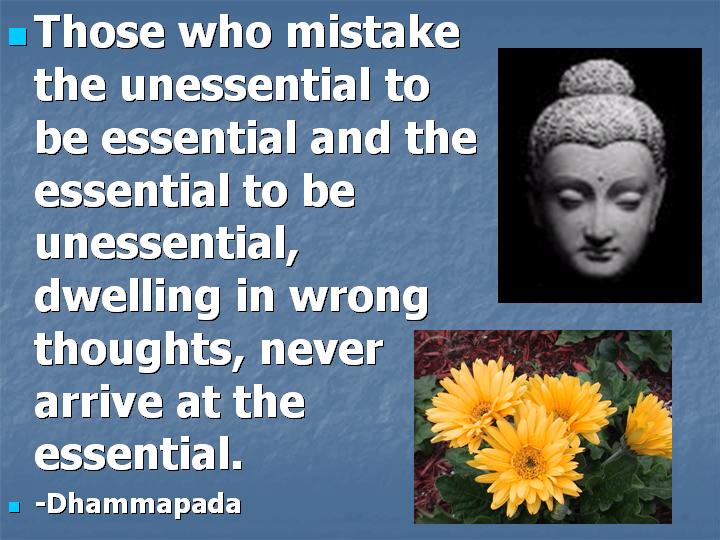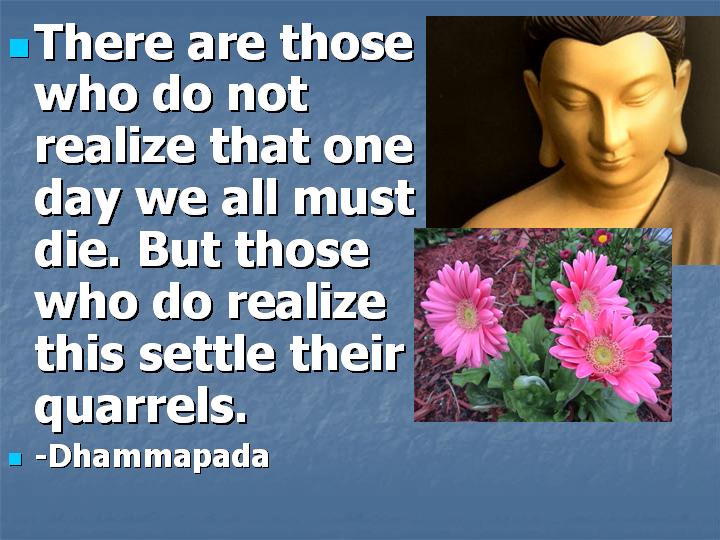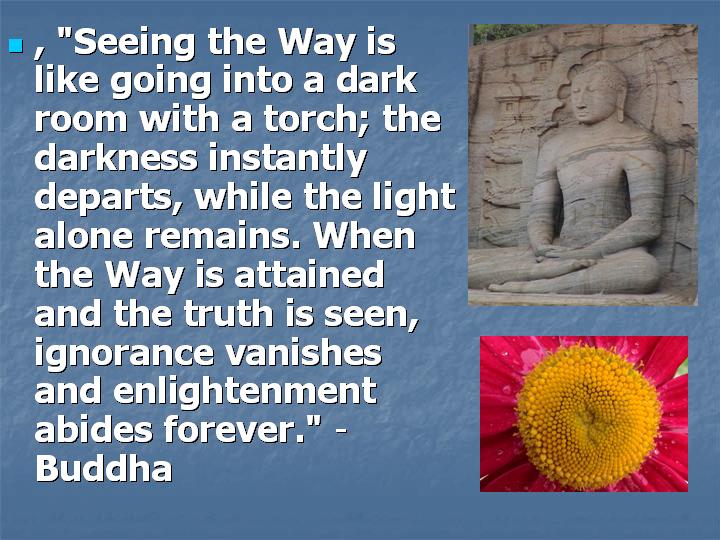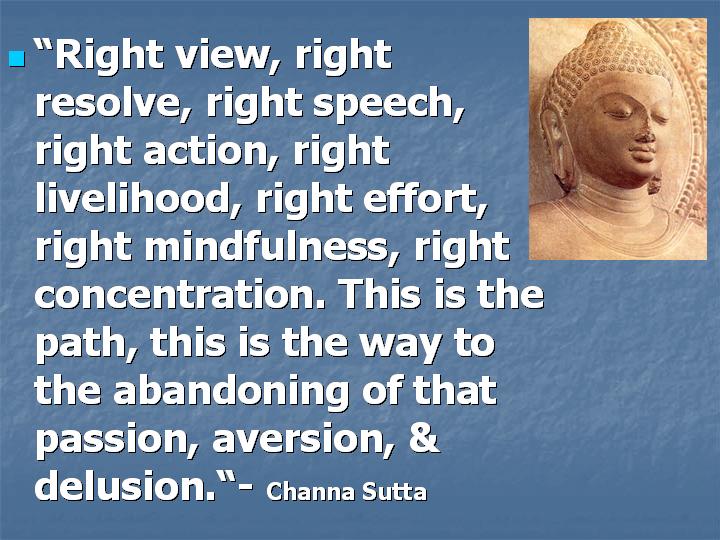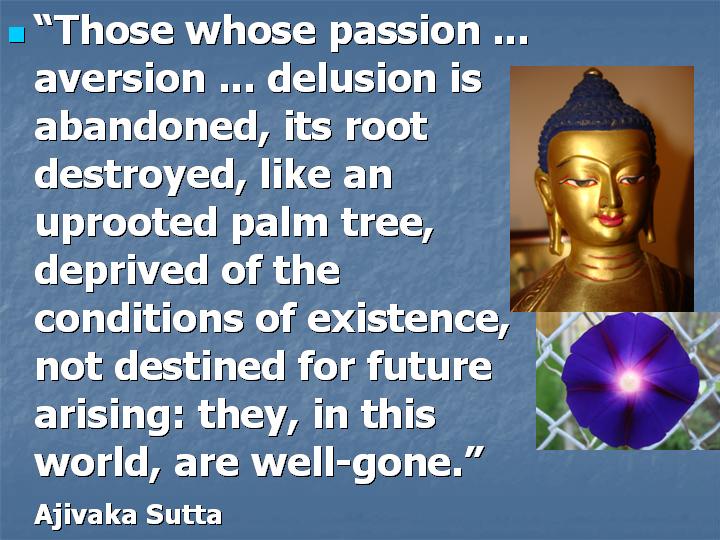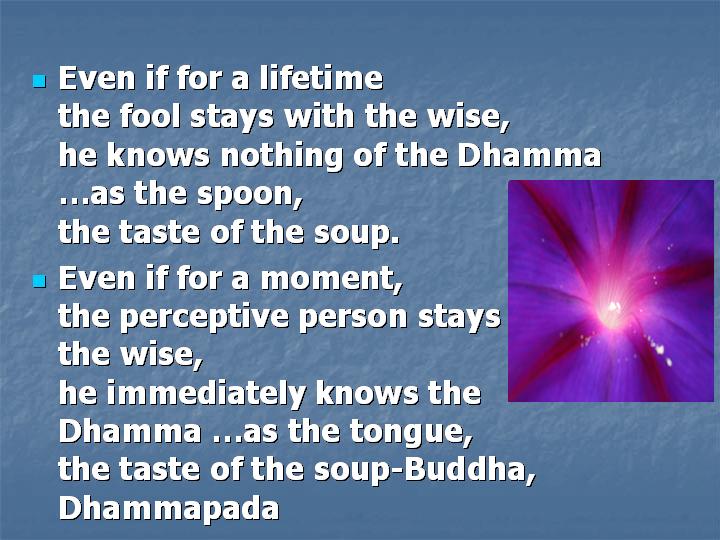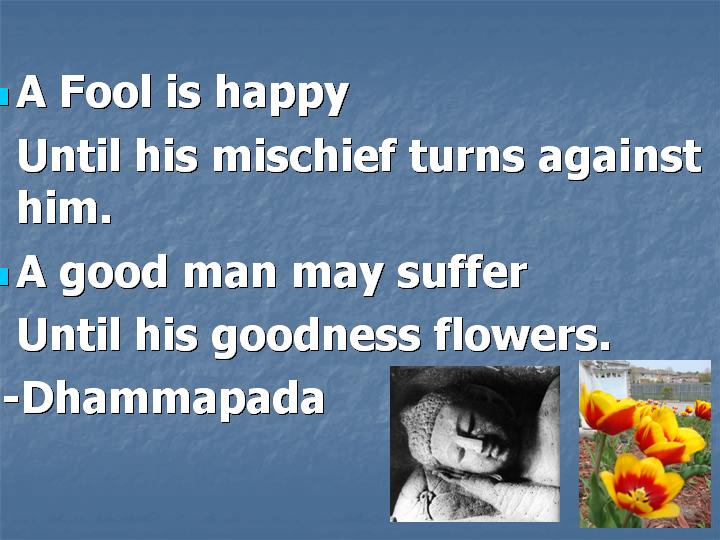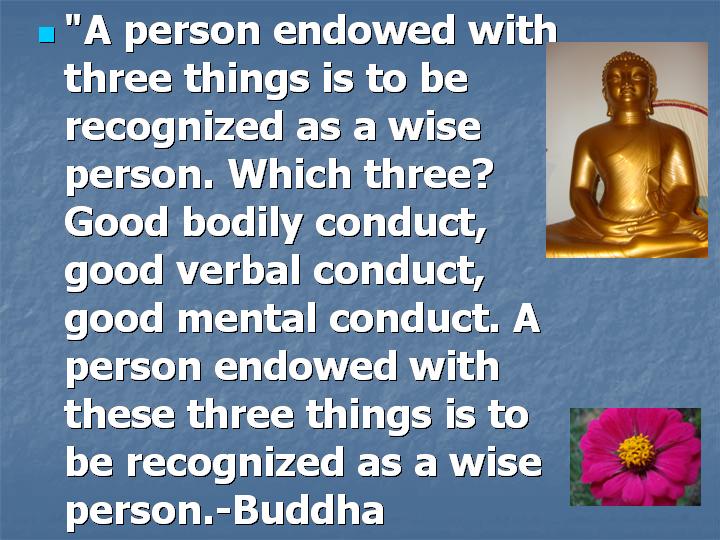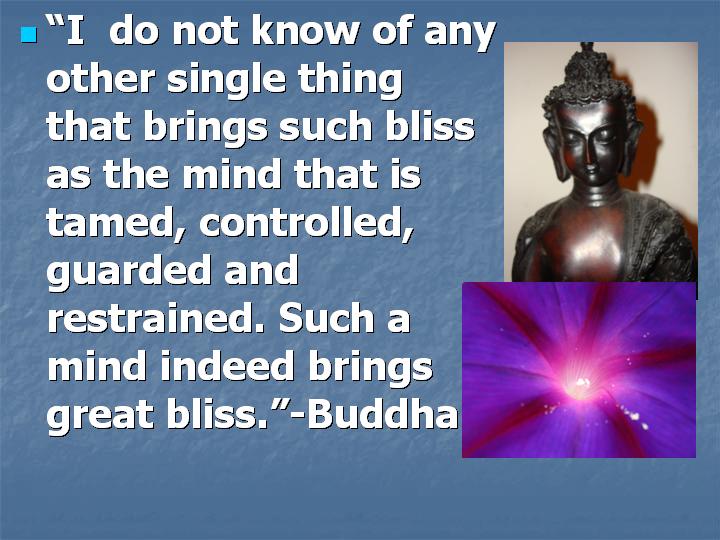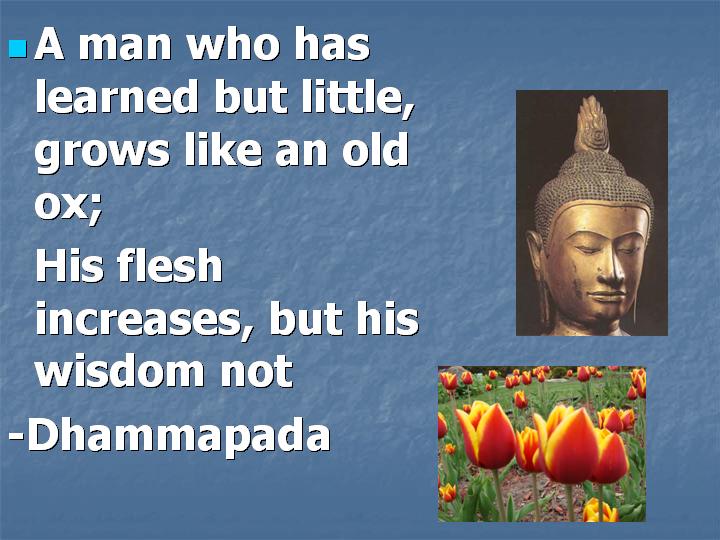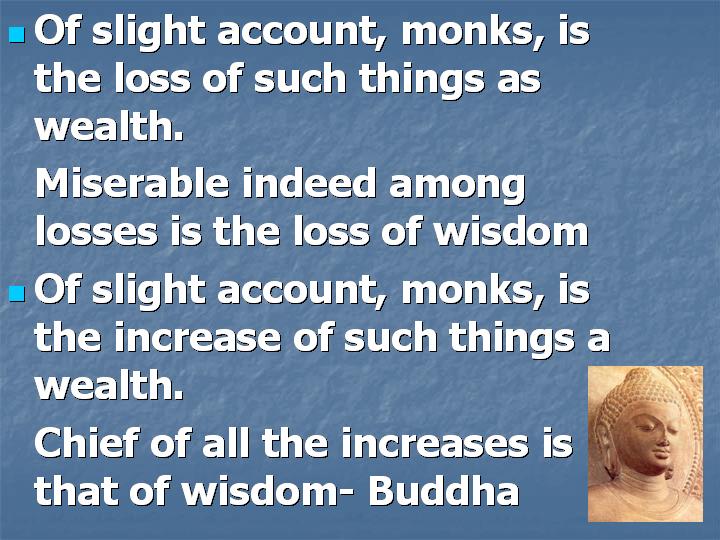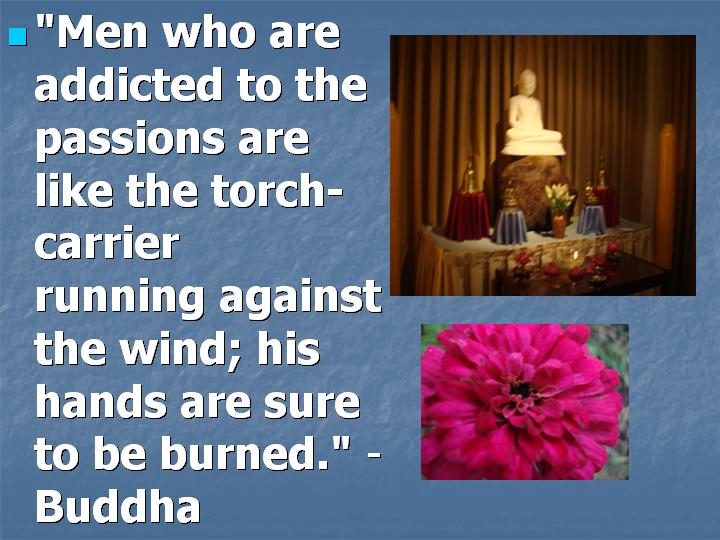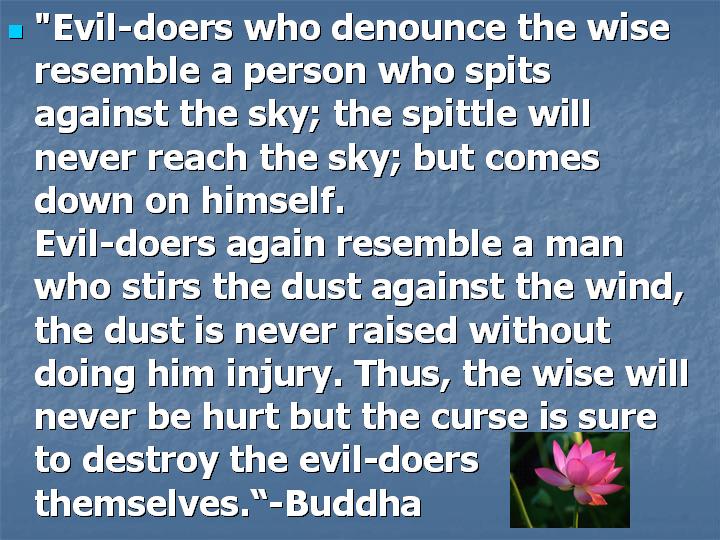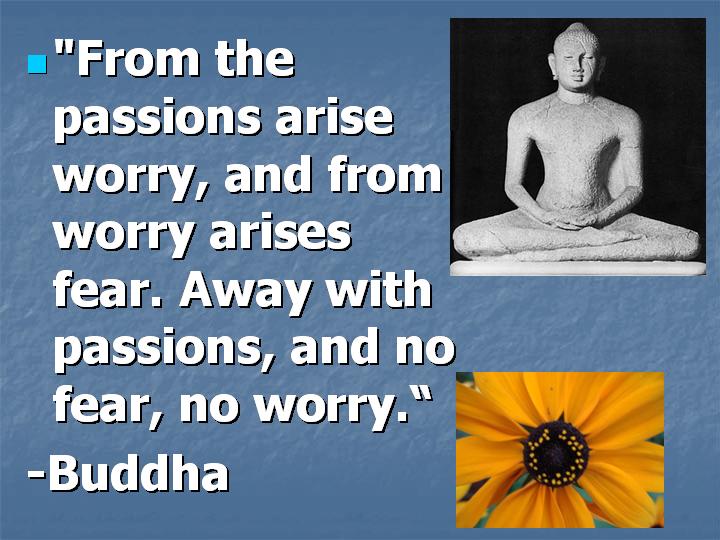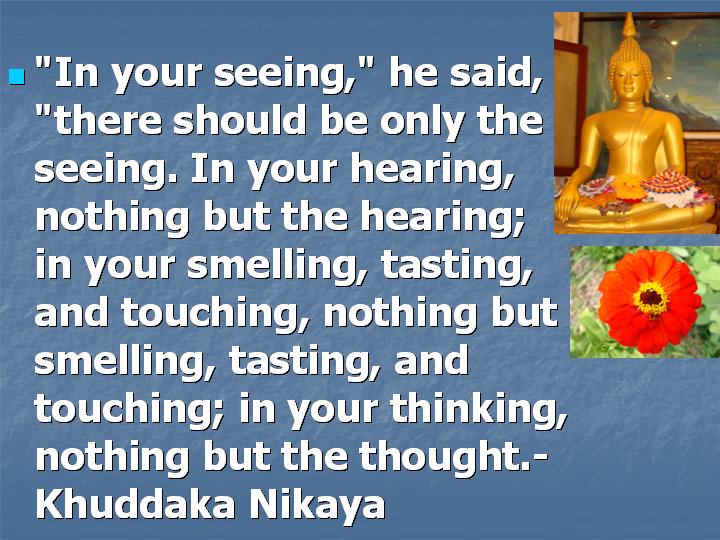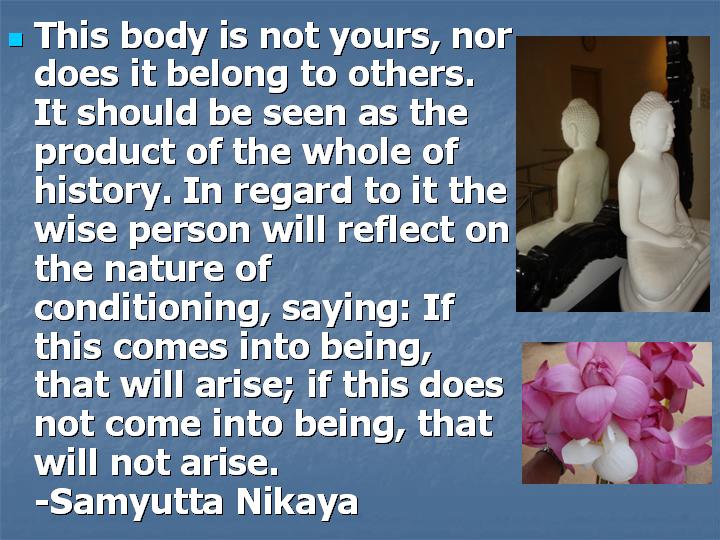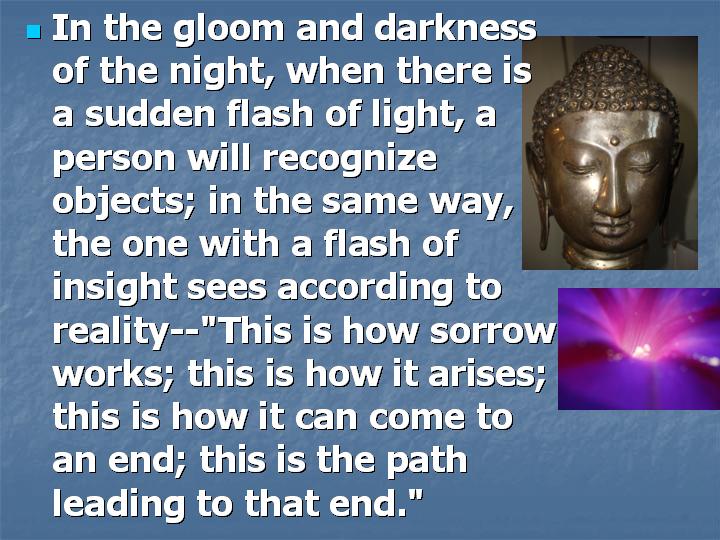
"Suppose there were a pool of water — sullied, turbid, and muddy. A man with good eyesight standing there on the bank would not see shells, gravel, and pebbles, or shoals of fish swimming about and resting. Why is that? Because of the sullied nature of the water. In the same way, that a monk with a sullied mind would know his own benefit, the benefit of others, the benefit of both; that he would realize a superior human state, a truly noble distinction of knowledge & vision: Such a thing is impossible. Why is that? Because of the sullied nature of his mind."
"Suppose there were a pool of water — clear, limpid, and unsullied. A man with good eyesight standing there on the bank would see shells, gravel, & pebbles, and also shoals of fish swimming about and resting. Why is that? Because of the unsullied nature of the water. In the same way, that a monk with an unsullied mind would know his own benefit, the benefit of others, the benefit of both; that he would realize a superior human state, a truly noble distinction of knowledge & vision: Such a thing is possible. Why is that? Because of the unsullied nature of his mind."













